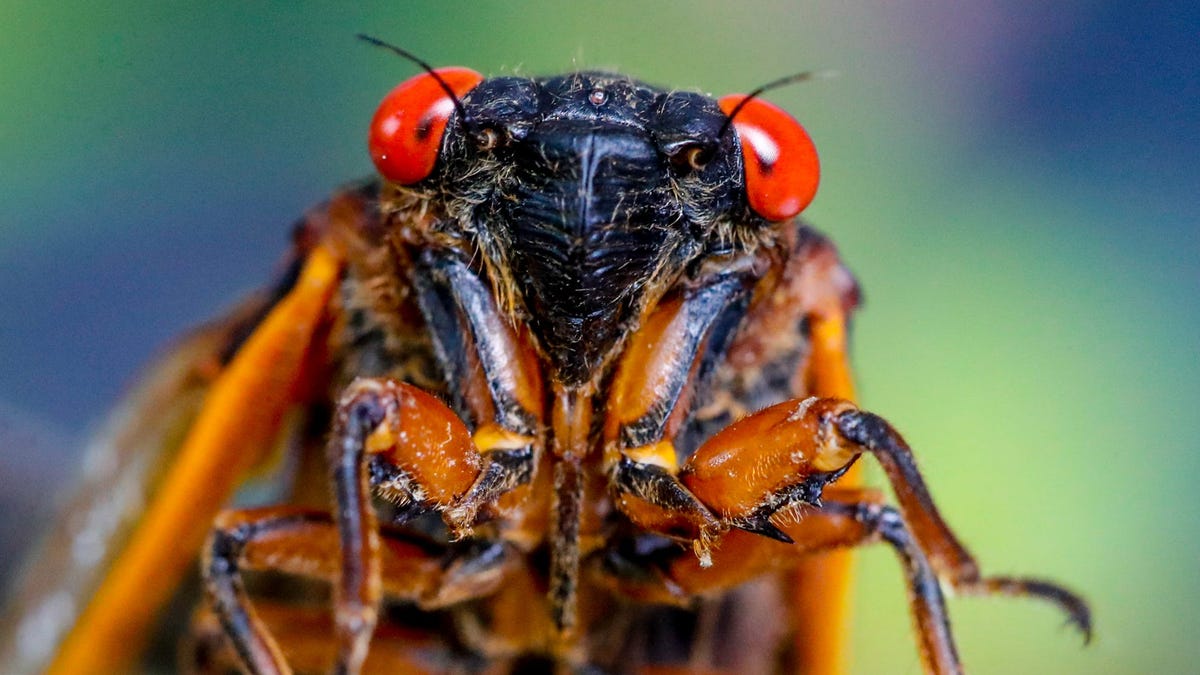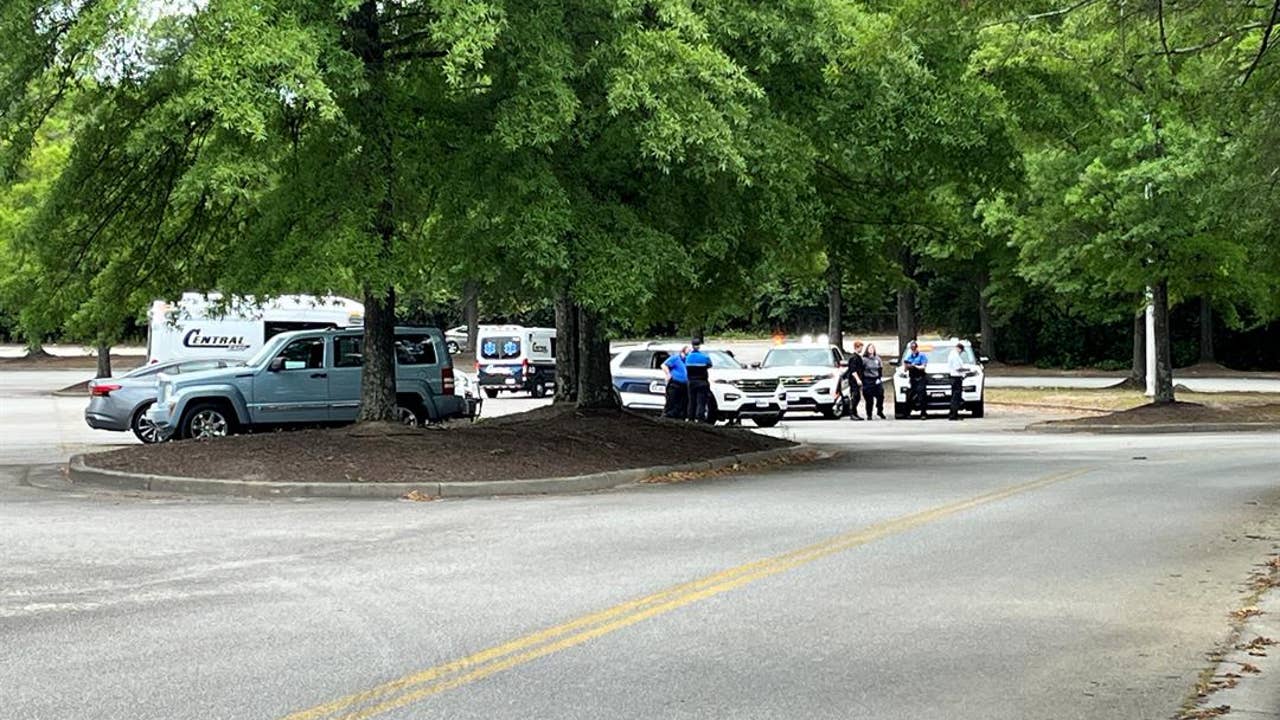Reporting by John Kruzel; Editing by Will Dunham
South-Carolina
South Carolina Democrat’s House bid runs through US Supreme Court
/cloudfront-us-east-2.images.arcpublishing.com/reuters/5D2MOCNFV5LVJJ6FVYQMJLF6PY.jpg)
South Carolina Democrat Michael B. Moore poses on the grounds of the International African American Museum where he served as founding president and CEO in Charleston, South Carolina in an undated photograph. Moore is vying to unseat Republican incumbent Nancy Mace in South Carolina’s 1st congressional district. Ashley… Acquire Licensing Rights
WASHINGTON, Oct 10 (Reuters) – South Carolina Democrat Michael B. Moore, the great- great-grandson of a Black Civil War hero and pioneering 19th century congressman, is aiming to help his party retake control of the U.S. House of Representatives from Republicans in 2024.
But his political fortunes may be in the hands of the U.S. Supreme Court as he seeks election in a coastal House district that includes parts of Charleston. The justices on Wednesday are set to hear an appeal by state officials seeking to implement a Republican-drawn map for the district that a federal three-judge panel found illegally diluted the power of Black voters.
In a legal challenge by Black voters, the lower court found that the map “exiled” 30,000 Black residents from that district – shifting their neighborhoods into a different district – in violation of the Constitution’s 14th and 15th Amendments, which guarantee equal protection under the law and prohibit race-based voting discrimination.
Black voters tend to favor Democratic candidates.
According to Moore, the Republican-drawn map effectively “muted” the voices of voters.
“We would love to have those voters back,” said Moore, who seeks to win the Democratic primary and then unseat Republican incumbent Nancy Mace. “It’s the fair thing to do if federal courts have acknowledged that those voters were unconstitutionally disenfranchised.”
Legislative districts across the United States are redrawn to reflect population changes documented in the nationwide census conducted every decade.
A practice called gerrymandering involves the manipulation of electoral district boundaries to marginalize a certain set of voters and increase the influence of others. In this case, the Republican-controlled state legislature was accused of racial gerrymandering to reduce the influence of Black voters.
South Carolina officials have argued that their map was designed to secure partisan advantages, a practice that the Supreme Court in 2019 decided was not reviewable by federal courts – unlike racial gerrymandering, which remains illegal. The officials faulted the lower court for finding that the district’s composition was motivated primarily by race rather than Republican interests.
The eventual ruling by the Supreme Court, which has a 6-3 conservative majority, may determine whether a Democrat has a realistic shot to win this district, said elections analyst J. Miles Coleman of the University of Virginia’s Center for Politics.
Similar legal cases over electoral maps in Louisiana, Georgia, New York and other states could help determine which party next year emerges with control of the House. The Supreme Court in June ruled against Alabama Republicans in one such case, ordering that state to devise a second majority-Black U.S. House district in a ruling that gave a boost to Democrats. Republicans hold a slim 221-212 House margin.
1ST CONGRESSIONAL DISTRICT
South Carolina’s 1st congressional district sent Republicans to the House each biennial election from 1980 to 2016 before a Democrat won in an upset in 2018. It reverted back to Republicans in 2020 when Mace won by just over 1 percentage point, or 5,400 votes.
The South Carolina legislature used the redistricting process to bolster Republican support in the district. The new map increased the district’s share of white voters while reducing its share of Black voters, which the lower court referred to as “bleaching.”
The map relocated 30,000 of the district’s Black residents to the neighboring 6th congressional district that stretches 125 miles (200 km) inland from Charleston. The 6th district has been held for three decades by Democrat Jim Clyburn, one of the most prominent Black members of Congress.
Mace sailed to re-election in 2022 in the reconfigured district. Clyburn’s is the only one of South Carolina’s seven U.S. House districts held by a Democrat.
Mace signed a brief urging the justices to preserve the Republican-drawn map. Mace’s congressional office did not respond to a request for comment.
Moore, for his part, said he would welcome a judicial ruling returning some or all of the 30,000 Black “exiled” residents back to his district.
Moore, 61, is a former business executive who helped launch Charleston’s International African American Museum. He also is the great- great-grandson of Robert Smalls.
Smalls, born into slavery in 1839, later served five terms in the U.S. Congress beginning in 1875. During the Civil War, he commandeered a Confederate ship in 1862 and delivered it to Union forces, securing his freedom and that of a group of other enslaved passengers.
When he was elected to the House, the district he represented included part of the district his descendant now seeks to represent. In another historical parallel, that district also was redrawn by 19th century legislators who sought to weaken the influence of Black voters.
“Robert fought so hard for voting rights, for human rights,” Moore said of his ancestor, “and, in some ways, at least the aftershocks of those battles are still being fought.”
Our Standards: The Thomson Reuters Trust Principles.

South-Carolina
Cicada ‘roar’: Concerned SC residents call police. What to know about cicada emergence.

Cicadas in Indiana: Brood X’s singing cicadas coming to a tree near you
Meet Brood X’s singing cicadas with Timothy J. Gibb, Purdue University, Department of Entomology, March 4, 2021.
Michelle Pemberton, Indianapolis Star
Last week, the Newberry County Sheriff’s Office was swarmed by phone calls from local residents who were concerned about a particular sound they were hearing outdoors.
“We had several calls about a noise in the air that sounds like a siren, or a whine, or a roar,” the sheriff’s office said in a Facebook post.
So, what exactly was all the buzz about?
“The sound is cicadas,” the post said. “Cicadas are a super family of insects that appear each spring. The nymphs have lived underground for 13-17 years and now this time they are hatching.”
Brood XIX cicadas may be on the rise in the Upstate, but the sheriff’s office has assured residents that the insects are just a nuisance ― not a threat.
“Although to some the noise is annoying, they pose no danger to humans or pets. Unfortunately it is the sounds of nature.” the post said.
What are cicadas, and what do they look like?
According to Clemson University, cicadas are thick-bodied, plant-feeding insects that can be found clinging to trees and vegetation. They measure 1-2 inches long and have compound eyes in shades of black and red, although some may emerge with blue or white eyes. Having two eyes is better than one, but cicadas are lucky enough to have three called the ocelli, which are located in the middle of their head. The wings of the insects are thick with prominent veins, and their antennae are small.
Cicadas are known for their loud, shrill noise and exoskeletons (discarded shells). Along with hemipterans like leafhoppers and spittlebugs, cicadas belong to the suborder Auchenorrhyncha. Their presence can be found worldwide. In the U.S., they live in the eastern and southern parts of the country.
Annual cicadas and periodical cicadas are oftentimes confused with one another. In South Carolina, annual cicadas, which are black and green, can be heard every year during the summer. Periodical cicadas are smaller at 1.5 inches. They are black with red eyes and orange veins within their wings, only emerging every 13-17 years. Broods XIX are periodical cicadas.
“People hear the annual cicadas every year,” said Eric Benson, Clemson University’s extension entomologist. “In the summertime when it’s hot, dog day cicadas can be heard. In the late afternoon or evening, you’ll hear that whining in the trees. Those are the cicadas, the males calling to the females. But you know, that may be tens of hundreds (of cicadas), not tens of thousands or millions. It’s just the sheer number that makes them so loud.”
How do cicadas produce their sound?
There are over 3,000 cicada species, each one having a distinct sound, according to Britannica. Males are the only cicadas to produce the sound, which is used to establish authority and attract females into mating. Prior to copulation, a courting call is also produced. Another use of sound is to deter predators. Periodical cicadas are louder than annual cicadas due to their large numbers.
The tymbal organ is a part of the cicada anatomy that is distinct from other insects, each male possessing a pair of the circular, ridged members on the back and side surface of the first abdominal segment, according to Britannica. When the tymbal muscle attached to the membrane is contracted, it bends, making a clicking sound. As the muscle relaxes, the tymbal goes back into place. The contractions are rapid in succession, moving 120-480 times a second and creating a sound that seems continuous to the human ear. The sound is amplified by air sacs containing resonant frequencies similar to the tymbal vibration frequencies. This is why cicadas sound like they are buzzing.
Are cicadas harmful to humans or pets?
Cicadas are not harmful to humans or pets and do not sting or bite, according to the United States Environmental Protection Agency. Although they are not a threat to pets, cats or dogs that consume too many of the tiny creatures may come down with a temporary upset stomach, which may lead to vomiting.
But if you see a cicada, don’t squash it ― these buzzing bugs have environmental benefits:
∎ They are a food source for birds and other predators.
∎ They can aerate lawns and improve water filtration into the ground.
∎ When they decompose, they add nutrients to the soil.
When will the cicadas die off?
Once male and female cicadas have mated and the female has laid its eggs, USA TODAY reports the insects will die after spending only five weeks above ground, according to National Geographic. In other cases, adult periodical cicadas live for just three or four weeks, according to Smithsonian Museum of Natural History.
Nina Tran covers trending topics. Reach her via email at ntran@gannett.com
South-Carolina
Gov. McMaster proclaims SC Heat Safety Week to increase awareness this summer

COLUMBIA, S.C. (WCSC) – South Carolina Governor Henry McMaster has declared this week Heat Safety Week to shed light on how important it is to prioritize health when it’s hot outside.
The state Department of Natural Resources says South Carolina Heat Safety Week is April 29 through May 3.
Several state offices are partnering to inform residents about proper safety measures that can be done to help prevent heat-related illnesses and deaths as the temperatures rise, including the Climatology Office, the National Weather Service, the Department of Natural Resources, the Department of Health and Environmental Control and the state Emergency Management Division.
Each day of the week, the SCDNR says the group will share different safety tips and facts on staying safe this summer.
For example, the National Weather Service of Charleston says they will be implementing new Heat Advisory/Excessive Heat Warning criteria as of May 1.
To learn more about heat-related illnesses from DHEC, click here. The National Weather Service has a list of safety tips and resources, here.
Copyright 2024 WCSC. All rights reserved.
South-Carolina
Voter registration deadlines for 2024 South Carolina primary elections

The 2024 South Carolina Primary Election is Tuesday, June 11. State law requires a person to register to vote at least 30 days before an election. See voter registration deadlines below:
- May 10 at 5 p.m.: In-person at Berkeley County Voter Registration and Elections Office, 1003 Highway 52, Moncks Corner
- May 12 at 11:59 p.m.: Online at www.scvotes.gov, by fax at 843-719-4060 or email completed application form to webvre@berkeleycountysc.gov
- May 13: Mail (postmarked by this date) completed application form to the following address: P.O. Box 6122, Moncks Corner, SC 29461
VOTER REGISTRATION BY MAIL
Berkeley County residents can also pick up application forms from 9 a.m.-5 p.m. Monday through Friday at the Berkeley County Voter Registration and Elections Office or one of the following locations:
- All Berkeley Library Branches; see locations at berkeleylibrarysc.org/locations-and-hours/.
- Goose Creek City Hall – 519 N. Goose Creek Boulevard, Goose Creek, SC 29445
- Moncks Corner Town Hall – 118 Carolina Ave., Moncks Corner, SC 29461
- St. Stephen Town Hall – 124 Hood Street, St. Stephen, SC 29479
- Post Offices in Bonneau, Cross, Cordesville, Goose Creek, Huger, Jamestown, Pineville, Russellville and St. Stephen
If a resident has registered to vote but recently moved, they may update their address at www.scvotes.gov. If one has moved within the same county, one may complete a change of address on the back of the current voter registration card and mail it to Berkeley County Voter Registration and Elections Office at P.O. Box 6122, Moncks Corner, SC 29461.
Absentee ballots: Voters may apply now for absentee ballots for all 2024 elections. They may request an absentee ballot in person at Berkeley County Voter Registration and Elections Office or by calling 843-719-4058.
You may request an absentee ballot application for the S.C. Primary Elections by May 31. Completed absentee ballots must be returned by 7 p.m. on June 11. For more information about voter registration in South Carolina, visit scvotes.gov/voters/register-to-vote or berkeleycountysc.gov/dept/elections.
-

 Kentucky1 week ago
Kentucky1 week agoKentucky first lady visits Fort Knox schools in honor of Month of the Military Child
-

 World1 week ago
World1 week agoShipping firms plead for UN help amid escalating Middle East conflict
-

 News1 week ago
News1 week agoIs this fictitious civil war closer to reality than we think? : Consider This from NPR
-

 Politics1 week ago
Politics1 week agoICE chief says this foreign adversary isn’t taking back its illegal immigrants
-

 Politics1 week ago
Politics1 week ago'Nothing more backwards' than US funding Ukraine border security but not our own, conservatives say
-

 News1 week ago
News1 week agoThe San Francisco Zoo will receive a pair of pandas from China
-

 World1 week ago
World1 week agoTwo Mexican mayoral contenders found dead on same day
-

 Politics1 week ago
Politics1 week agoRepublican aims to break decades long Senate election losing streak in this blue state


















